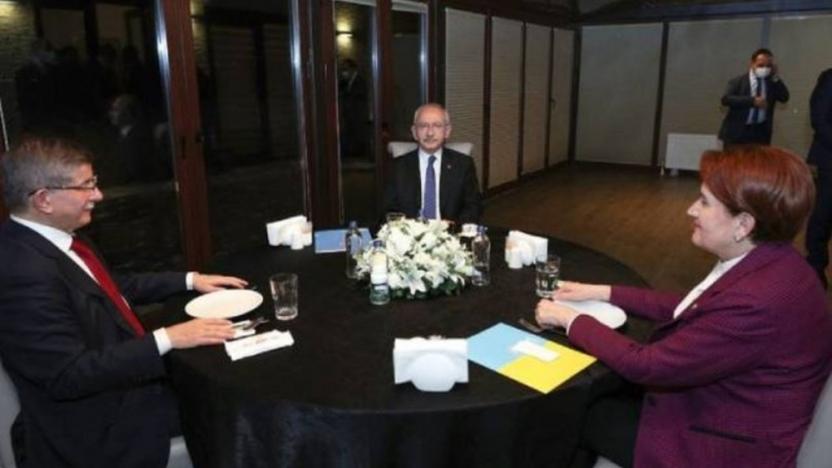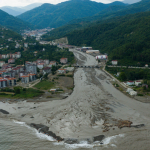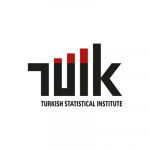As it has become commonplace in Turkey, political dynamics continue their constant change with each coming day from the detention of journalists to the Turkish President threating to ‘cut the tongues’ of Turkish pop stars. Such unpredictability is further exacerbated by the chronic economic crisis in the country as the wages and savings for a large majority of middle-class Turks dissipate with each day due to rising commodity prices as a result of soaring inflation (36% according to the Turkish Statistical Institute (TUIK) for the month of December, even though other economists estimate the rate to be much higher). Added to this economic crisis, there is a clear political crisis in the country, especially at a time when the opposition remains bitterly divided and has yet to develop a coherent strategy for the upcoming elections in 2023, as rumors of possible early elections continue.
Voting Trends and Recent Opposition Dynamics
Recent polling data from the Yöneylem (Operations) Research Center in their December 2021 report show President Erdogan’s party (AKP) at 26.9%, with a slight lead ahead of the main opposition Republican People’s party (CHP) at 26.3%. This is followed by the Nationalist centre-right Good (IYI) party at 10.4%, the pro-Kurdish People’s Democratic Party (HDP) at 8.2%, and the Nationalist Movement Party (MHP) at 4.7%. The poll also indicated that the vote shared between those who describe themselves as ‘undecided’ and ‘won’t vote’ stands at 27%. Another surprising finding from the report is that in terms of alliance (coalition) preferences, the Nation’s alliance (consisting of the opposition CHP-IYI parties) stands at a vote share of 34.7%, the People’s alliance (coalition between the AKP-MHP)at 13.9%, while undecided voters are at a staggering 45.3%. These results clearly indicate that while a political fragmentation is taking place within the Turkish political landscape, there is a very large segment not satisfied with any of the other political parties, whether it be the AKP or the opposition.
Opposition dynamics also seem to be changing in consideration of the domestic and global events that have recently occurred. In another interesting development, the breakaway Gelecek (Future) Party leader and former Prime Minister Ahmet Davutoglu recently held a meeting with CHP party leader Kemal Kilicdaroglu and IYI Party leader Meral Aksener about the possibility of joining the opposition Nation Alliance. During the meeting, Davutoglu expressed that such a possibility was continent on a ‘redesign’ of the alliance at a higher level, involving the creation of a ‘executive board’ consisting of representatives of all the parties part of the alliance. As argued by Davutoglu, such a board would monitor the transition from the current presidential system to a future parliamentary system, effectively streamlining certain protocols and decisions that would have to be made in that transitory period. Such meetings and proposals signal a growing attempt by opposition parties to reach some sort of consensus to unite themselves around their disdain for Erdogan in the upcoming national elections. Given the diverse ideological differences between the parties ranging from secular nationalism to political Islamism, and differences over securitization policies in Syria and other regions, the bigger challenge for the opposition will ultimately be formulating a coherent policy agenda and roadmap for making common decisions.
Competition for ‘Voting Blocs’: Erroneous Priorities of the Opposition
Amid widespread protests that occurred in Kazakhstan over the doubling of prices for fuel and the removal of price caps, four parties (AKP-MHP-CHP-IYI) came together to sign a joint declaration condemning the protests by Kazakh people over the hike in prices, essentially placing their support under the current government of Kassym-Jomart Tokayev. There was significant criticism of this declaration on
social media, with many who were shocked at how the opposition decided to not support the protestors who were against the increase in prices and removal of price caps (which is similarly occurring in Turkey). This declaration could further undermine views of the opposition as an effective challenger to mobilize against Erdogan. It is also important to acknowledge that the protests were a broader reaction to the corruption within the Kazakh system and kleptocracy of the regime and provided further impetus to this demand for social change.
Another controversial topic that has recently generated a heated debate within Turkish civil society was the student dormitories throughout the country that are run by various religious sects. This was triggered by the tragic death of 20 year-old medical student Enes Kara, who committed suicide after he filmed a video explaining the oppression he faced in his dormitory run by a religious sect. Enes Kara’s death triggered a secular-pious debate in the country, with a clear majority of citizens calling for the closure of these very strict religious dorms. This is further supported by an opinion poll from Metropoll research, where 80.4% of respondents indicated that they found the operation of student dormitories by religious sects wrong. Yet despite of the outrage, opposition parties in Turkey (with the exception of the leftist Turkish Workers’ Party) remained silent on Kara’s death. CHP leader Kemal Kilicdaroglu specifically remarked that he would not comment on the issue over ‘ethnical concerns’.
Despite a clear criticism of how religious dormitories are run and strong support for the principle of secularism still persistent in the country, why is the opposition mainly silent on this topic? A big reason for this is associated with the enormous influence of religious sects on Turkish politics, especially during the AKP era. When secular Turkey was established in 1923, all Islamic sects were shut down and condemned as holding Turkey back from the ‘modern era’. Despite this, many sects continued to operate underground, and overtime started exerting their influence over politicians in exchange for patronage. These sects (or ‘cemaats’ in Turkish), gradually extended their influence in politics during the AKP era. Presently, there are approximately 3,027 Islamic-clerical training schools in Turkey. Presumably, opposition parties refrained from reacting to the news of Enes Kara’s death, out of fear of alienating pious voters ahead of the upcoming elections. The significant influence of religious sects on Turkish politics has created a solidified ‘voting bloc’, where the party that supports them the most and provides organizational resources to operate will be the party that the ‘cemaat’ supports in the elections. Even though only 8-12% of the general population support religious dormitories, the silence from the opposition parties on this issue suggests they believe these votes will be important in the upcoming election.
This strategy demonstrates the erroneous priorities set by the opposition parties in Turkey. In an electoral environment where the number of undecided voters range from 25% to as high as 45%, the opposition should instead prioritise these ‘undecided blocs’ and try to gain their support. However, due to previous mistakes made by the secularist regime, such as the banning of wearing headscarves on university campuses (which was overturned under the AKP regime), opposition parties fear an environment even more polarized over identity politics, and believe this 8-12% bloc to be important to not alienate.
Opposition Needs to Clean Up Double Standards
One reason for why the rate of undecided voters is so high in polling data might be due to the opposition parties’ double standards on issues such as the rule of law. One particular example is the CHP and IYI Party’s continued criticisms of the absence of the rule of law in Turkey under Erdogan. Yet, just this past week the secretary general of the IYI (Good) party Ugur Poyraz stated that they support the Constitutional Court’s case to investigate and possibly close the pro-Kurdish HDP. The continued insistence of advocating for the closure of the HDP is also a strategy pursued by some opposition parties to try and court ultra-nationalist voters away from the junior coalition partner of the AKP, The Nationalist Movement Party (MHP) even though the HDP is still considered to be a legitimate party in parliament, consistently passing the 10% threshold needed to be included in the Turkish parliament in the last three general elections.
Overall, the erroneous priorities and double standards pursued by the opposition parties contribute to why there are so many undecided voters in Turkey. Many voters see such strategies as an attempt to emulate the current AKP-MHP government’s approach to political issues in the country, which have not been effective. This plays a role in the opposition’s inability to present a better way forward that differentiates them from the current AKP-MHP government Ultimately, if the opposition continues with this strategy of competing for the pious-religious ‘voting blocs’ and not broaden their electoral strategy to reflect a larger segment of the population, the percentage of undecided voters will continue to remain high, hurting the chances of stopping the country’s decline to one-man dictatorship. As part of that strategy, they should speak up based on the principles that are supposed to be foundations of their parties, rather than just focusing on these pious blocs.
Written exclusively for NAT By: Bertug Yoruk
Bertug Yoruk is a Political Science MA Candidate at Carleton University in Ottawa, Canada. He holds a Bachelor of Arts Honours degree in Political Studies from Queen’s University in Kingston, Canada. Follow him on Twitter: @yorukbertug
News about Turkey offers readers different points of view. The opinion expressed in this text is not necessarily shared by the editors of NAT.



